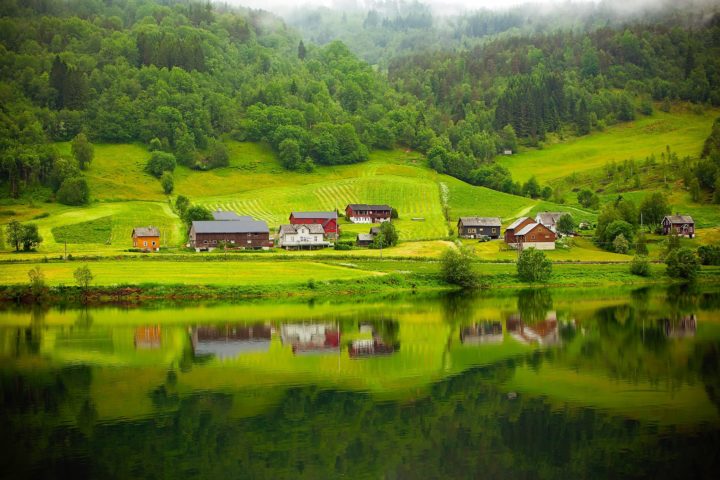The following contribution is from another author.
The common narrative about rural areas is that they’re places that young people flock from as soon as they can. They move to the cities, which means the population of these rural towns begins to decline. However, this only tells one side of the story. While people in their twenties are heading for the city, people in their thirties and older are increasingly likely to head to more rural areas. If you’re one of them, then there are a few things you should now. Below, we take a look at what you can expect from your small town, rural life below.
More Land
One thing that people who begin looking for homes in rural areas notice pretty quickly is how much further their money goes. If you had, say, $200,000 to buy a property, you might be lucky to get a two bedroom apartment in a busy city. In rural areas, you’d get a multi-bedroom home with some land to play with, too. This is, obviously, a good thing, though if you’re prone to finding faults, you could say that more property and land means more upkeep. But it’s a compromise worth making.
Less Noise, Different Light
The earth is remarkably quiet; it’s humans that cause all the noise. If you live in a city, you’ll be subjected to near constant noise, be it from people or machines like cars. When you move to a rural area, you’ll find that this noise is much less prevalent, if present at all. Indeed, during your first night you might be a little unsettled by the lack of noise. It’ll quickly become something that you appreciate, however. You’ll also find that the light is different, too. The city is filled with tall buildings, which means they can feel dark even on sunny days. There’ll be no such issue in a space where the highest building is three stories. You’ll be able to make full use of the daylight. However, once the sun sets, you’ll be largely on your own, as there’ll be fewer lights from cars, stores, bars, and street lamps.
New Issues
Now, there are some cities where living creatures invading your space is an issue. However, for the most part, it’s not something that city-dwellers have to think about all that time. They’re living in what can be called “human spaces.” When you move into more rural areas, you’re entering nature’s territory, and that means you’ll have more interactions with living creatures, such as wildlife on the roads. Bugs will also find their way into your home more easily, and you’ll want to have the number of a good pest control company handy. While you might be a bit put off by creepy crawlies when you first move, you’ll quickly get to the point where they no longer faze you.
Cultural Events
If you’ve been living in a large, cosmopolitan city, then you’ll be used to there being different events each week, or every day, even. You could look up things to do in your city, and within an hour be at a world-class event. When you live in a rural area, this won’t be the case. There’s not doing to be any major cultural events taking place. There will, however, be local events, which you can use as a way to integrate yourself into the community. If you enjoy the happenings of big cities, it’s recommended that you don’t move into the middle of nowhere; if you’re within a couple of hours drive from a city, you’ll be able to visit for a day and attend the events.
Adjusting to Reduced Convenience
There are some cities that never sleep. You can get whatever you need at any time of the day. Even if things aren’t that extreme, there’s unlikely to be any point before 11 pm when you’re not able to get what you need within easy driving or walking distance. In rural areas, it won’t be like this. There might be set opening times. Every store in town might be closed on Sundays. There might just be one home hardware store in town, and if they don’t have what you’re looking for, then too bad. These things are far from disastrous, but can take some getting used to.
Dealing with Drainage
One often underappreciated aspect of rural living is the importance of proper drainage on your property. As opposed to urban environments with established sewer systems, rural homes may rely on individual septic tanks or drainage solutions that help preserve property integrity while preventing water-related damages. Effective drainage management means channeling water away from homes and properties while preventing standing water and protecting the landscape from erosion. Maintenance can help keep repair bills at a minimum and promote a more sustainable living environment. Rural dwellers in particular will appreciate knowing a good drain cleaning service provider – don’t wait until the issue becomes severe before seeking professional help!
Less Stress
One of the reasons people move to rural areas is because there’s significantly less stress there. It’s a slower pace of life that allows you to enjoy the simple pleasures, and feel more relaxed and at peace. That is, for sure, a big plus point.
















